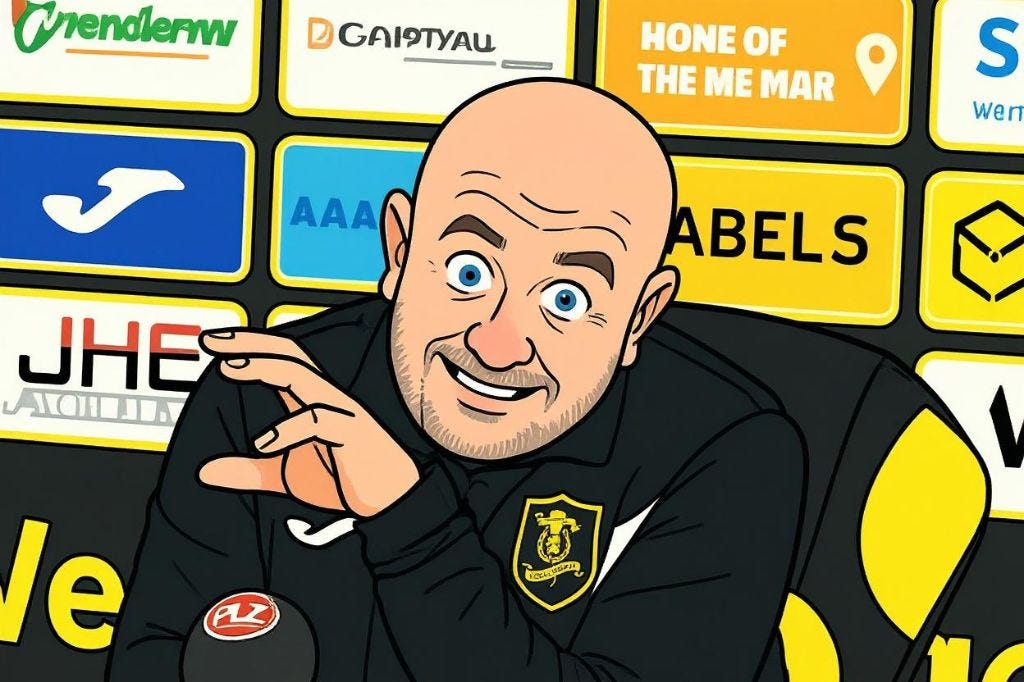Blaming Fans with a Mic Is the Last Refuge of a Manager Under Pressure
When a struggling manager blames podcasters and YouTubers for negativity, it says more about his team’s performances than the people talking about them.
I’ve been covering Scottish football for the best part of two decades, and I’ve heard every variation of the “talk up our game” line you can imagine. But when that message comes from a manager staring down the barrel of relegation, it rings more hollow than inspiring.
David Martindale’s frustration with YouTubers and podcasters for being “too negative” isn’t exactly unexpected - it’s the sort of deflection that crops up when your own team is rooted to the bottom of the table and doesn’t look like changing any time soon.
We’re constantly told by players and managers to sell Scottish football better, to promote the game more positively. Yet how can anyone credibly talk up the product when large chunks of it are unwatchable? When teams like Livingston regularly set their stall out to sit with ten, sometimes eleven, behind the ball and pray for a draw? You can’t preach positivity while sending out your players with instructions to kill the spectacle. That’s not entertainment - it’s damage control. And fans notice.
Almondvale holds ten thousand. Most weeks, you’re lucky if half that turns up - and that’s usually because the visiting support from Celtic, Rangers, Hearts or Hibs bolstering the numbers. If that’s not a reflection of the product on the park, what is? Broadcasters know it, sponsors know it, fans absolutely know it. But somehow, the people being blamed for the negative perception of Scottish football aren’t the ones responsible for the football itself - it’s the bloggers, podcasters, and YouTubers. The folk actually keeping people engaged with their own content.
Independent creators are a significant part of fan culture now. They don’t have to toe the party line or rewrite press conferences into “exclusive” stories. They call it as they see it. That’s what authenticity looks like - not some recycled narratives from a press pack that’s terrified of losing access. If anything, this new generation of fan media has done more to promote Scottish football globally than the so-called mainstream outlets ever have.
So maybe instead of trying to silence criticism, certain managers should look inward. Because the ones who complain loudest about negativity usually have the least to boast about. Fix your football first. Win some games. Give the fans something to shout about. Then, maybe, those so-called negative content creators will have something positive to say.
Until then, don’t shoot the messengers. Especially when they’re the only ones still talking about your club.




From rugby we could move free kicks forward say 10 yards for dissent etc I'm sure that was mooted a few years ago but sort of died out.
My biggest bug bear is time wasting, of a 90 minute game you're lucky to get 40 mins on the ball/pitch, again the officials have the powers to yellow card but seldom do!!!!!
Though we all see this awful tactic too often in the SPFL, it's gaining traction across Europe.
There's too much money and many jobs on the line for the cannon fodder teams in all countries to come out to try and win.
Don't know what can be done to battle these negative tactics....